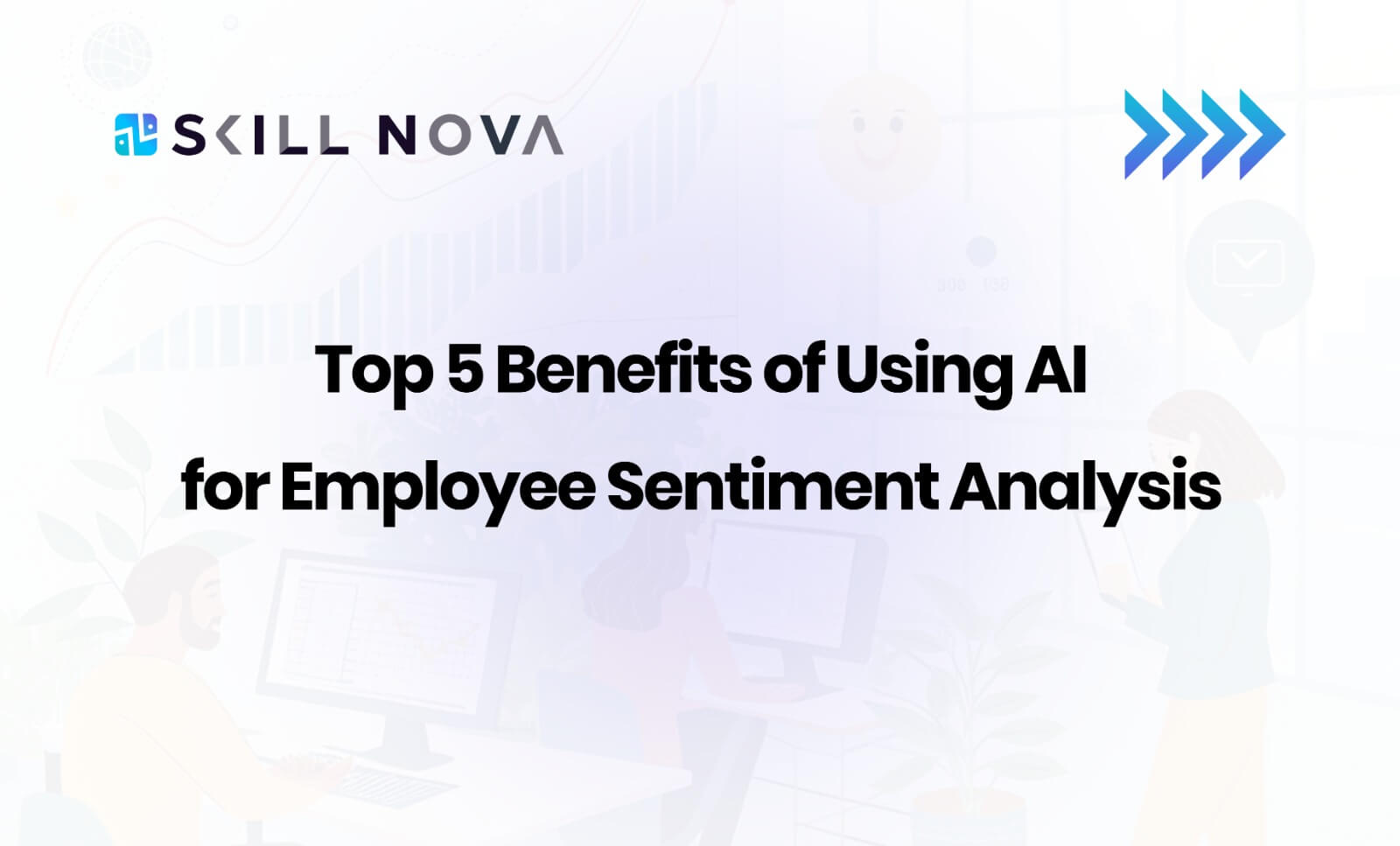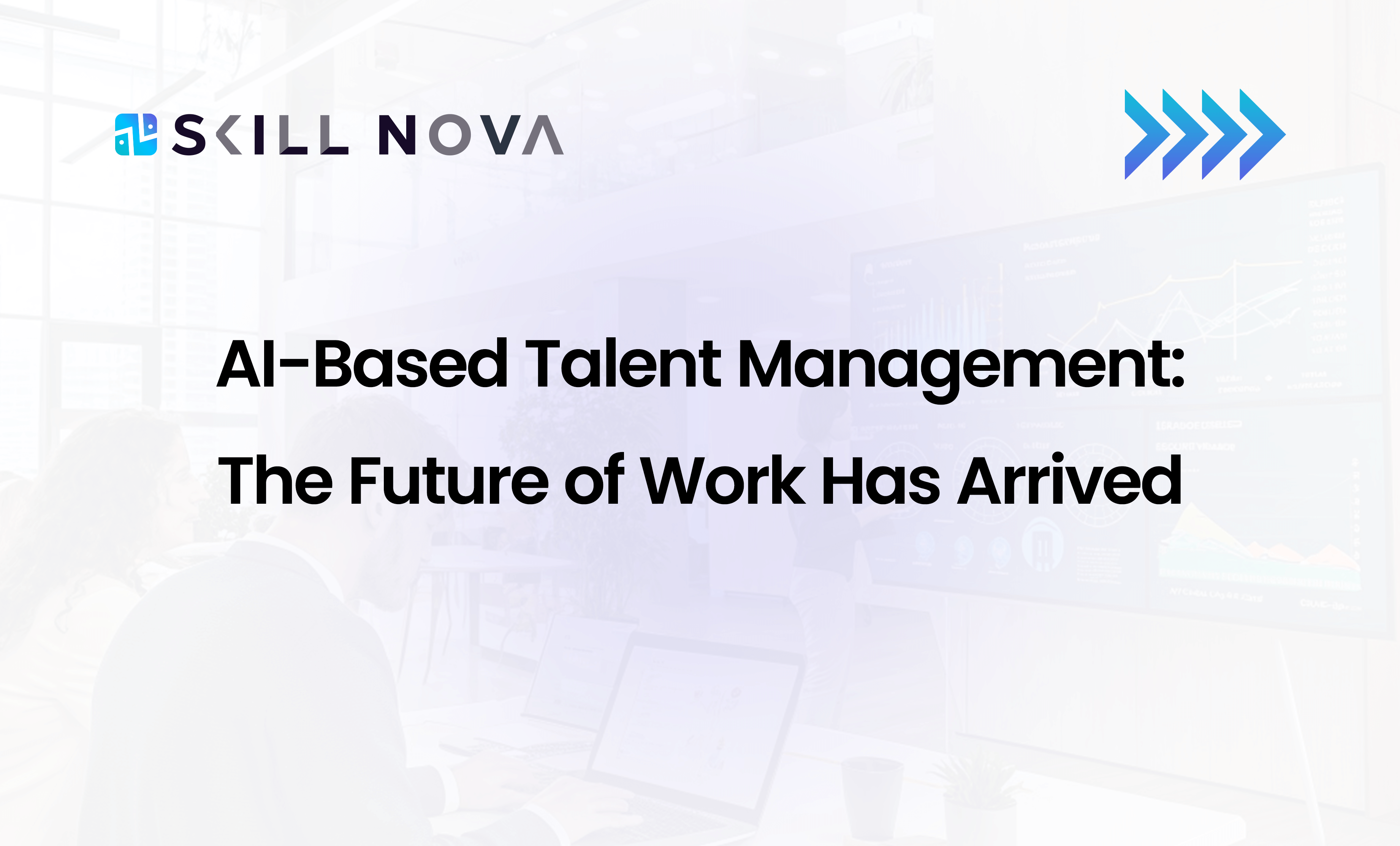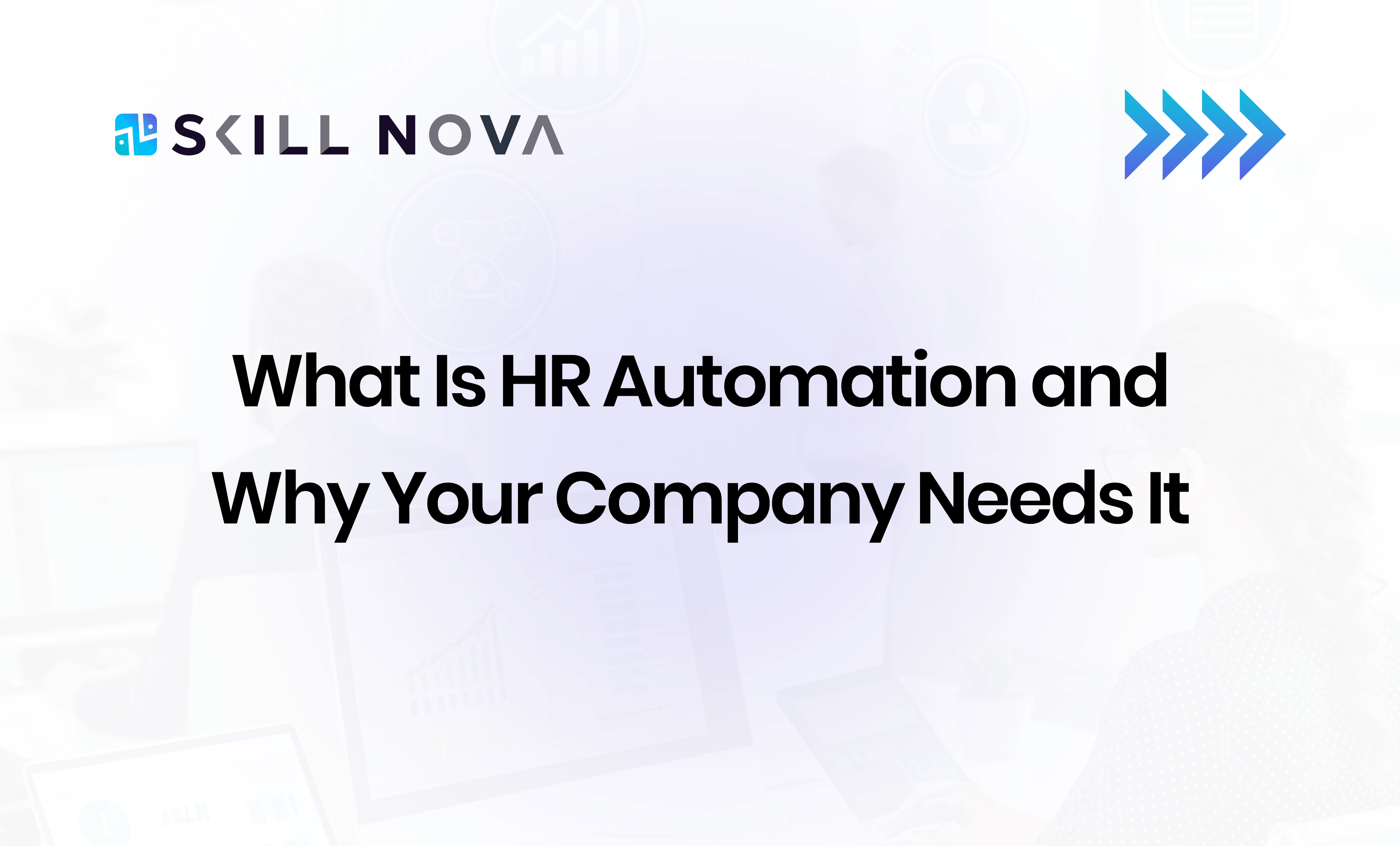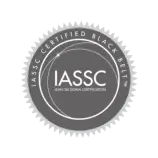Table of Contents
ToggleHave you ever wondered how companies in 2025 are making the employee experience smoother, more engaging, and highly efficient? The secret lies in HR workflow automation, a revolutionary advancement transforming traditional HR operations into seamless, digitally driven experiences. This technology is streamlining tedious, manual tasks and creating a more satisfying and transparent experience for employees from their first day.
One standout platform leading this transformation is Skillnova.ai, which offers intelligent automation solutions specifically designed for HR teams to elevate the entire employee lifecycle, from recruitment and onboarding to performance management and offboarding.
According to a 2024 report by Deloitte, 73% of organizations say HR automation has helped improve employee experience significantly. This shift signals a broader trend where HR teams adopt AI, robotic process automation (RPA), and cloud platforms to revolutionize workplace management.
The Current State of HR: Challenges and Pain Points
Despite the increasing digitization of workplaces, many HR departments still struggle with manual, paper-heavy processes.
These inefficiencies cause numerous issues:
- Onboarding delays due to lost or misplaced forms
- Payroll errors that frustrate employees and increase compliance risk
- Time-consuming leave and benefits approvals that slow down workflows
- Poor internal communication leads to disengagement and low morale.
Such bottlenecks frustrate employees and limit HR’s ability to focus on strategic initiatives, such as talent development and culture building.
What Does HR Workflow Automation Entail?
HR workflow automation leverages cutting-edge technologies such as:
- Artificial Intelligence (AI)
- Robotic Process Automation (RPA)
- Cloud computing platforms
These technologies automate routine, repetitive tasks traditionally handled manually by HR staff. Tasks like leave requests, approvals, payroll processing, recruitment screenings, and employee training scheduling can all be automated.
For instance, platforms like Skillnova.ai integrate these advanced technologies into a unified, user-friendly system that simplifies complex HR processes and reduces human error. This integration enables HR teams to focus on higher-value tasks and enhances the overall employee experience.
Top Benefits of HR Workflow Automation for Employees
Imagine starting a new job where your onboarding paperwork is completed automatically, without a single missed form or delayed signature. Or request time off with just a few clicks and receive instant approval notifications. This is no longer just a vision but a reality thanks to HR workflow automation.
Some of the most impactful benefits for employees include:
Faster Onboarding
Automation accelerates onboarding by automatically collecting necessary documents, scheduling training sessions, and ensuring adherence to compliance standards. According to a 2023 Gallup survey, only 12% of employees strongly agree their organization does a great job of onboarding. Automating this process increases engagement from the very start.
Streamlined Leave Management
Leave requests can often be a source of frustration when approvals take a long time. Automated workflows drastically reduce wait times by routing requests instantly to the correct approvers and sending real-time updates to employees.
Clear and Consistent Communication
Automated alerts and reminders inform employees about policy updates, upcoming deadlines, and training requirements, minimizing confusion and enhancing transparency.
Instant Performance Feedback
Automation tools enable the collection of real-time data on employee performance, providing timely feedback and actionable insights to help employees grow and improve continuously.
This chart illustrates the significant improvement in employee satisfaction that occurs with the introduction of HR automation, particularly when powered by AI.
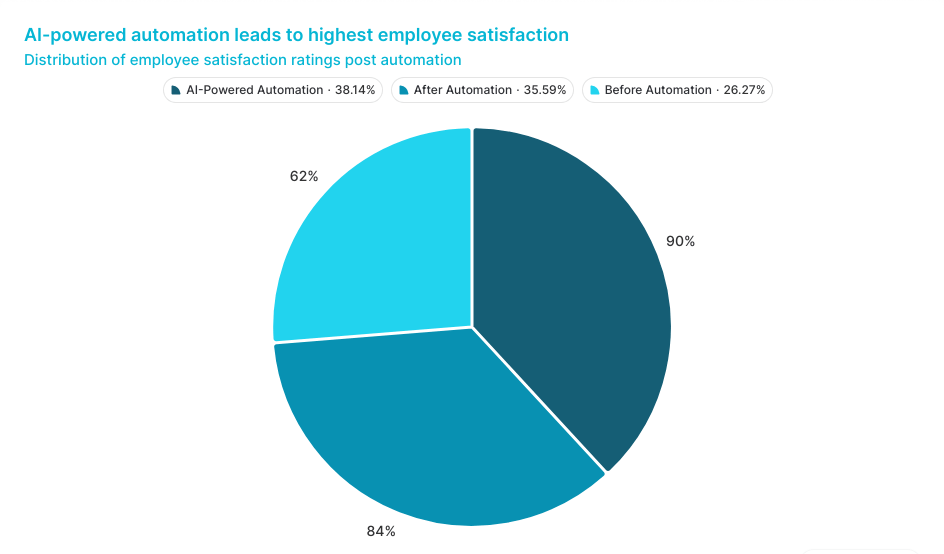
Figure 1: Impact of HR Automation on Employee Satisfaction.
Improving Employee Engagement Through Automation
Engagement is key to productivity and retention. A 2024 Gallup study found that highly engaged teams show 21% greater profitability and 41% lower absenteeism (source).
Automation enhances engagement by allowing HR teams to create personalized workflows tailored to employees’ needs, interests, and career paths. Self-service portals enable employees to access pay slips, request leaves, update their personal details, and view performance metrics at any time, without waiting for HR assistance.
This empowerment reduces frustration, builds trust, and encourages employees to take ownership of their work-life balance.
How Automation Enhances HR Team Efficiency
While employees enjoy a smoother experience, HR professionals gain huge efficiencies. According to a 2023 report by PwC, HR automation can reduce administrative task time by up to 40%.
Routine tasks such as timesheet approvals, benefits enrollment, and policy compliance checks are handled automatically, freeing HR staff to focus on:
- Talent development programs
- Strategic workforce planning
- Company culture initiatives
Automation also improves data accuracy by reducing manual input errors, enhancing compliance, and lowering audit risk.
The Role of AI and Machine Learning in HR Workflow Automation
AI and machine learning amplify HR automation by introducing predictive and prescriptive analytics. For example:
- Predictive analytics help forecast staffing needs, enabling proactive hiring and resource allocation.
- AI-driven chatbots answer employee questions instantly, 24/7, improving responsiveness.
- Platforms like Skillnova.ai use AI to identify high-potential employees and personalize career development plans based on data insights.
A 2024 McKinsey study reported that companies using AI-enhanced HR automation see a 25% improvement in talent retention rates.
Real-World Applications: Use Cases in 2025
Here are some specific ways HR workflow automation is changing workplaces:
- Recruitment: Automated screening algorithms filter candidates based on skills, experience, and cultural fit, reducing time-to-hire by up to 50%.
- Payroll: Automation ensures timely, error-free salary payments, decreasing payroll errors by 70%.
- Training: Learning management systems automate scheduling, tracking, and certification, ensuring employees stay compliant and skilled.
Integration and Implementation Strategies
Integrating with existing HR Information Systems (HRIS) or Enterprise Resource Planning (ERP) systems is critical to maximize the benefits of HR automation. Skillnova.ai is designed for seamless integration and offers intuitive interfaces to ease adoption.
Successful implementation involves:
- Conducting a process audit to identify automation candidates
- Selecting an automation platform with strong integration capabilities
- Rolling out automation gradually with thorough employee training
- Gathering feedback continuously to refine workflows
Overcoming Common Barriers to HR Automation
Despite the benefits, some challenges exist:
- Employee resistance: Effective change management, achieved through clear communication and hands-on training, is essential to alleviate fears.
- Data security: Ensure your platform adheres to relevant privacy laws, such as GDPR, and utilises encryption and multi-factor authentication.
- Costs: Initial investments can be high, but the return on investment (ROI) is demonstrated through time saved, reduced errors, and improved employee retention.
Future Trends in HR Workflow Automation
Looking ahead, expect even more personalized automation powered by AI to tailor workflows according to individual employee preferences. Automation will also evolve to support hybrid and remote work models with virtual onboarding and digital employee engagement tools.
AI’s predictive capabilities will enhance workforce planning and succession management, ultimately optimising HR strategy.
This graph shows adoption rates among small businesses, mid-sized companies, and large enterprises. Larger organizations have an 88% adoption rate.
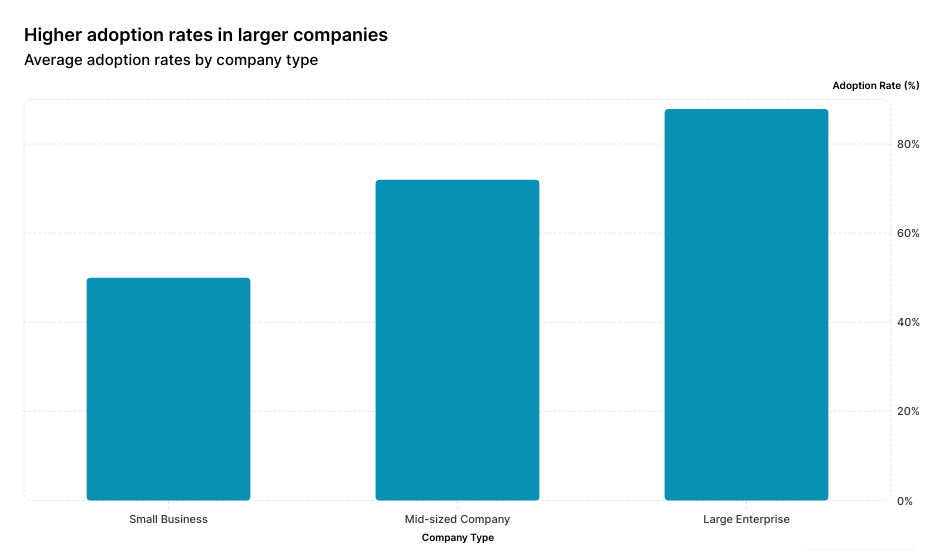
Figure 2: HR Automation Adoption in Companies (2025)
How Skillnova.ai is Leading the Transformation
Skillnova.ai combines AI, RPA, and cloud technology to deliver a comprehensive HR automation platform that covers every stage of the employee lifecycle from recruitment to exit interviews. Companies using Skillnova.ai have reported:
- 35% faster recruitment cycles
- 40% reduction in HR administrative time
- 30% improvement in employee satisfaction scores
Skillnova.ai’s AI-driven insights and user-friendly interface empower HR teams to deliver fast, reliable, and engaging service.
Measuring Success: KPIs and Metrics to Track
To evaluate the effectiveness of HR automation, track these key performance indicators (KPIs):
- Employee satisfaction and engagement scores (via surveys and feedback tools)
- Average process turnaround times (e.g., onboarding duration, leave approval time)
- HR cost savings and error reduction rates
- Retention and turnover rates
These metrics help optimize workflows and justify continued investment in automation.
Tips for HR Leaders to Maximize Workflow Automation Benefits
- Provide ongoing training and support to your HR teams to update them on new tools.
- Encourage employees to give feedback on automation tools and workflows.
- Stay informed about emerging technologies and continuously refine your automation strategies.
- Foster a culture of transparency and adaptability to ease transitions.
Conclusion
HR workflow automation is not just a buzzword; it is the future of the employee experience in 2025. By streamlining complex processes, empowering employees with self-service options, and freeing HR teams to focus on strategic priorities, automation platforms like Skillnova.ai are redefining how companies attract, engage, and retain top talent.
Embracing HR automation today means staying competitive and prepared for the demands of the future workforce.
FAQs
Q1: What is HR workflow automation?
HR workflow automation utilises technology to automate repetitive HR tasks, resulting in faster, more accurate, and engaging processes.
Q2: How does Skillnova.ai improve HR automation?
Skillnova.ai integrates AI and automation to streamline recruitment, payroll, training, and more, enhancing the experiences of both employees and HR teams.
Q3: Can automation improve employee engagement?
Absolutely! Automation provides transparency, faster responses, and self-service options, all of which boost engagement.
Q4: Is HR workflow automation secure?
Leading platforms, such as Skillnova.ai, utilise robust security protocols to safeguard sensitive employee data.
Q5: What are the first steps to implement HR automation?
Assess your current HR processes, choose an automation platform like Skillnova.ai, plan integration carefully, and provide training to your teams.


